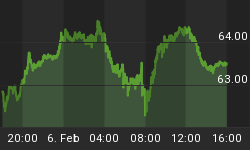The Efficient Market Theory
There is a long held belief that the stock market is the fore-teller of all that will happen. Somehow it is believed that the market can see into the future, and the rises or falls in the market foretell what will happen with some accuracy. Believers, which includes most people, ignore the dramatic rises in the market before the meltdown of the money market in 2007, or the great crashes of 2008 and 2009. Still, in spite of much evidence to the contrary, this belief persists.
On the other hand, great investors such as Warren Buffet, believe that the market swings irrationally and that you buy when stocks are irrationally depressed.
The Efficient Market Theory
This theory, known as "The Efficient Market Theory", is also the basis of Investment Advisors advocating a "Buy and Hold" approach to investing. The belief is that in due course, the market will always value a stock fairly, and that stocks tend to rise over time. This theory says that all stocks are valued properly because all information necessary to value a stock is available.
A Decision by a Group is Better than an Individual's Decision
The belief is that the stock market, by being valued by the sum of each individual investment decision, is the total of all of these individual decisions, and therefore is almost always correct. This theory has been generally accepted as for some odd and vaguely understood process, a decision made by discussion among a group, is more often then not, a better decision than would have been made by any individual. It seems that even if the average knowledge, or IQ, or technical knowledge, of the group seems lacking or less than adequate, the decision made by the collective wisdom of this group, is often more accurate and a better decision than a decision made on the subject than any individual, no matter the intelligence or understanding of that individual.
Why this group decision is often the best decision, is not really understood, in spite of many theories. Yet, it seems to be be a valid conclusion.
The corollary of this vaguely understood process, is that because people investing in the stock market automatically constitute a group, therefore the value of any stock is properly expressed by its current trading price. Therefore the sum of all of these stocks, and whether the general stock market index rises or falls is a correct fore-telling of the future.
The Market Has All Information on Which to Make a Decision
The same theory, which is that a group understands any situation far better than any individual, states that The Efficient Market Theory means that the stock market has all of the information necessary to make an informed decision. Therefore, somehow all knowledge about every stock is known to the market in general, and the value of that stock, and of all stocks, is established because the market has all information necessary to come to that valuation.
The Efficient Market Theory is Nonsense
The very fact that Facebook could trade at $38 at opening, then over $40, then at $28, and now slightly over $30 is proof that the efficient market theory is nonsense. Another example is often stated by Warren Buffet, who in reference to the idiosyncrasies of the market, asked why General Motors was worth over $20 one year, and under $2 the next year. He remarked that it was the same company, in the same business, doing the same thing, yet depending on when you look at the stock price, it varies dramatically.
Another Warren Buffet quote is "Most people get interested in stocks when everyone else is. The time to get interested is when no one else is. You can't buy what is popular and do well." In other words, the value of any stock fluctuate dramatically. If the stock market was an efficient barometer of value, the price would reflect true value at all times, yet it doesn't.
Other Indications of the Folly of this Theory
As time passes, more and more of the stock market volume is as a result of program trading. Computers now account for over 80% of the trading volume. These computers trade based on market trends. They rely on sophisticated software that determines whether a stock is poised to rise or fall. What is more interesting, is that because there is so much trading based on computer programs, that stock market rules have had to been continually revised to prevent meltdowns. Computer trading, also know as program trading, call be a self-fulfilling prophecy. As one program trades down, other programs watching, see a lower trade and also trade down to catch the trend. The result can be a precipitous drop in a matter of minutes. So much for fair valuation of stock values.
The point here is that doom and gloom pervades the market, and fear is inhibiting most investors. If a stock is supported by a company with good value, with good underlying assets, and there is no logical reason for it to have fallen so much, then that stock is probably a good value to buy right now. If you don't buy it now, you will look back in a a few years and bemoan the fact that you didn't buy when the price was so low. Now is the time to lay the groundwork of getting wealthy.















